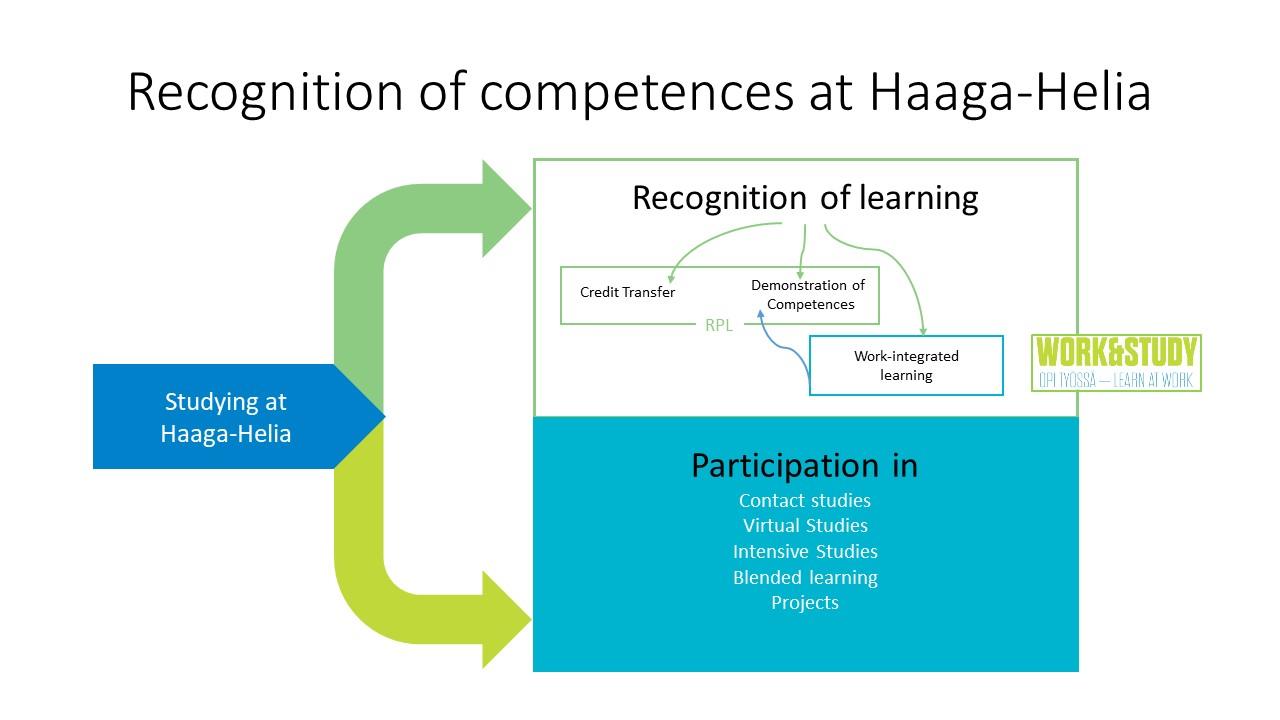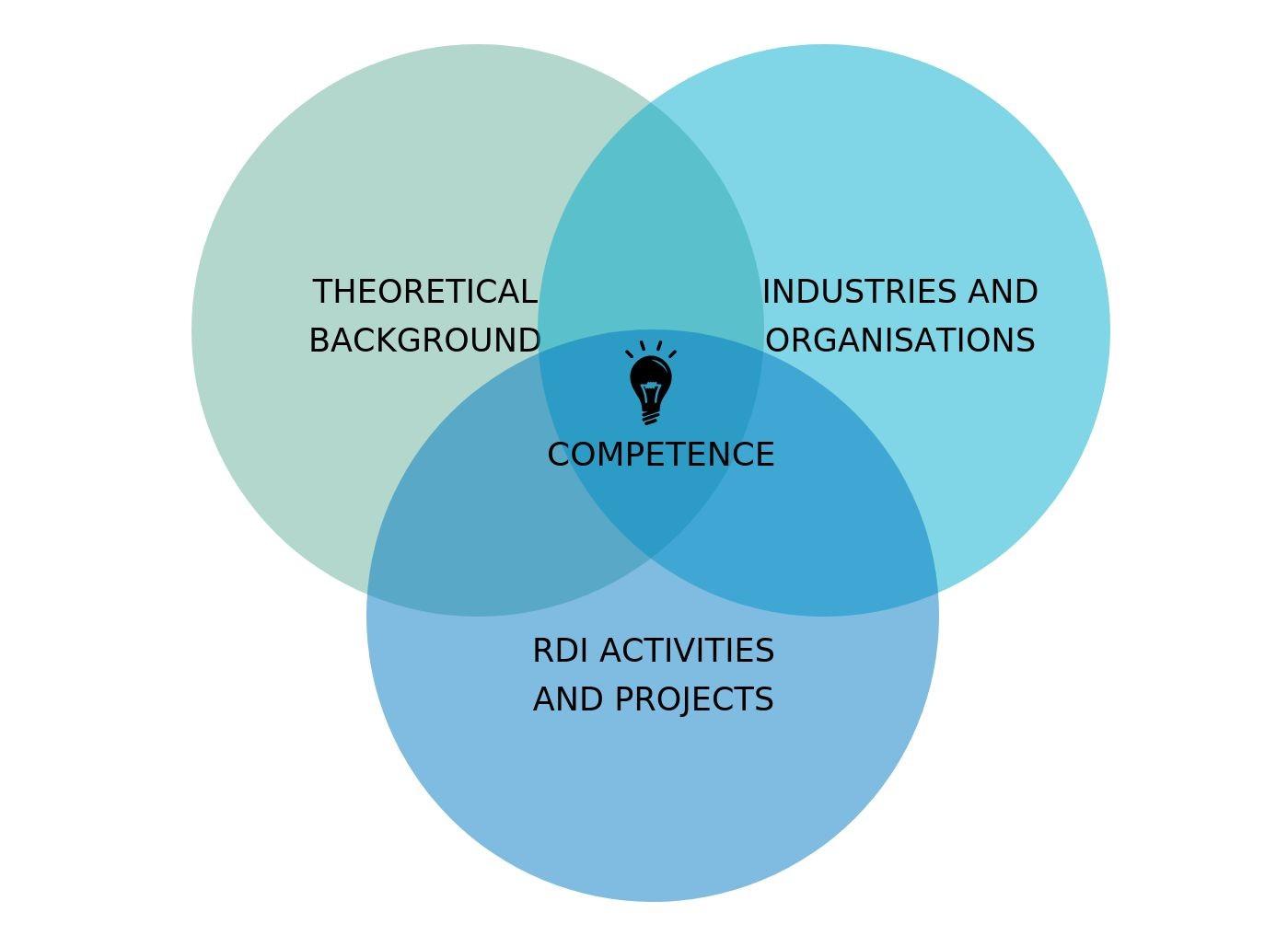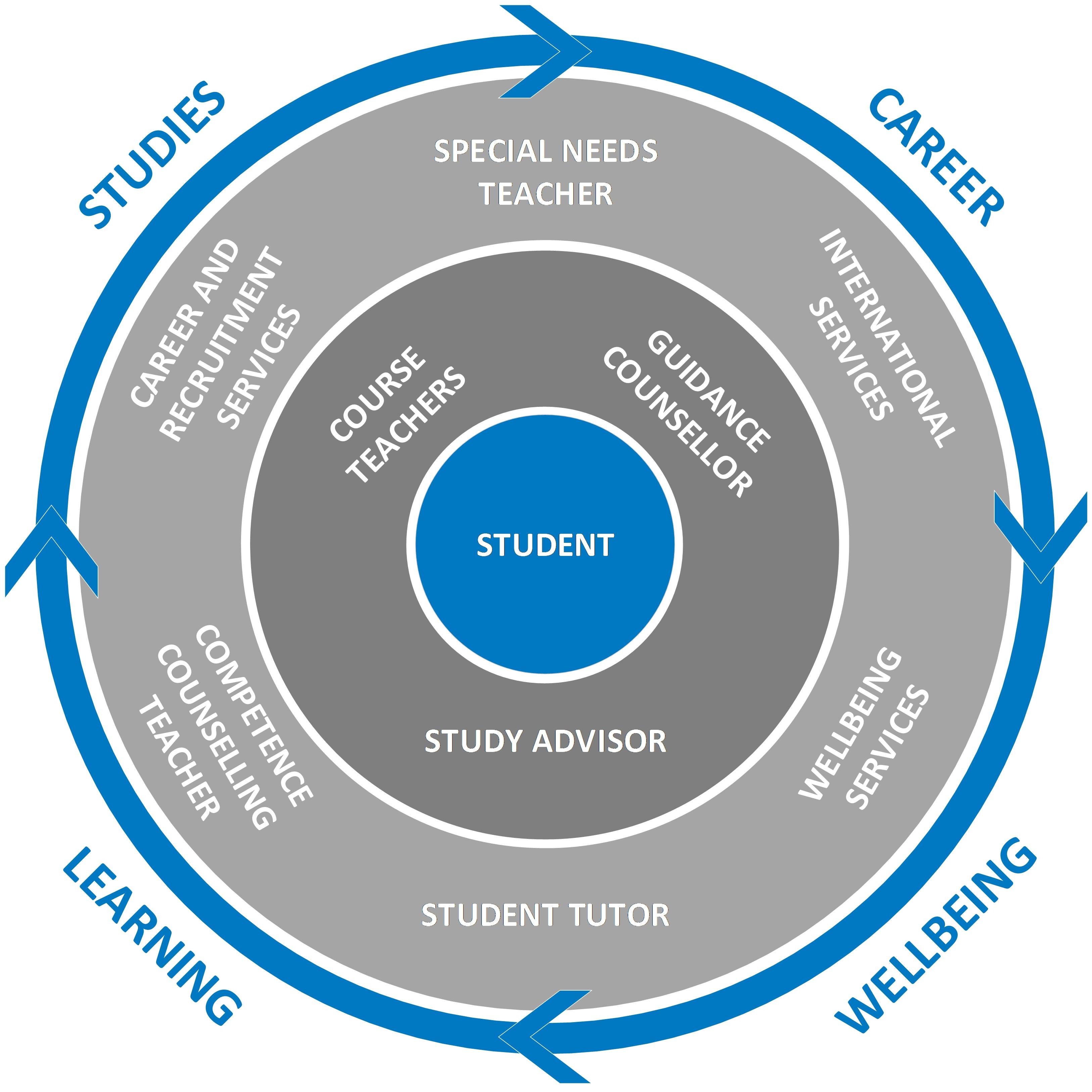HEI's self-assessment
Transparency in student selection and recognition of prior learning
The criteria for student selection are decided by the Collegiate Body. According to the criteria, every applicant is entitled to a fair process through which the study places are given. The criteria are public and available to the applicants before the application period. If the applicant is not satisfied with the result, s/he can make an appeal which is processed by the official legal criteria. The application process functions well, and the number of appeals is small.
Recognition of prior learning (RPL) includes credit transfer and demonstration of learning. The RPL possibilities are explained to new students already in their letter of admission. Students can contact their own guidance counsellor before orientation days to start their individual study plan. During orientation all new students participate in the RPL workshop, which helps them to understand the intended learning outcomes and recognise their own competences. During studies, students are reminded about the RPL possibility in guidance meetings. Both credit transfer and demonstration of learning have a process in place, which is clearly communicated to the students by study counsellors and teachers.
Nearly all courses can be completed by demonstration of learning. This method of completion is available once only for each course. The practices of demonstration of learning have been modified as part of the organisational change and education reform. Our RPL process also includes Work&Study, the model of work-integrated learning, which is used if the skills required by the degree are gained by working and by connecting the practical work with relevant theory.

Picture 9. Recognition of competences at Haaga-Helia
Supporting the active role of students
Teaching methods are important in supporting our pedagogical vision of students as active learners. Courses are taught either as contact, blended, online or virtual. Teachers select suitable methods for the topic taught. In many courses, a team of teachers works together to discuss the methods and ensure they are appropriate and meaningful in relation to the intended learning outcomes of the course. Our teachers are pedagogically trained to be able to choose and use appropriate methods. More cross-checking and collaboration could be done, although co-teaching is common. For digipedagogical support, there is an expert team of teachers who offer help with our online teaching platforms. The pandemic has had a significant impact on teaching methods and forced a leap in digital pedagogy across Haaga-Helia. It is too early to say what permanent changes it has brought, but online and virtual education are here to stay.
Feedback is collected after every course implementation, and students are asked to actively reflect on their learning. As part of the same process, teachers also give feedback, but this could be more systematic. The dialogue between students and teachers is good and feedback is also given spontaneously outside of the official feedback system. Flexibility and the use of different methodologies in different courses makes the studies more varied for students, but also requires them to take responsibility, actively plan their studies and make decisions.
Connecting studies to future careers
Our pedagogy is based on collaboration with businesses and organisations to ensure students possess the knowledge and skills relevant in their future career. Compulsory work placements are an important tool for this. Company visitors are invited as guest lecturers and students visit companies during courses. Many courses also work on real life projects where students develop or create something new and useful for the company. The company representatives brief students, coach them together with the teachers and give feedback on the project results. The bachelor and master theses are also good examples of projects where companies commission research and development projects carried out and then reported by the student. Business collaboration helps students to network and build valuable contacts during their studies. Many teachers have strong networks to build projects on, but if a teacher’s own networks are limited, more active collaboration with our partners could be encouraged.

Picture 10. Combination in building student’s competence
Support throughout studies
We support our students by providing efficient services. Professional guidance counselling is available throughout studies. Guidance counsellors are responsible for monitoring study progress and supporting study planning to prevent termination of studies. A new model of study guidance has been developed to better support our students with the new curricula. Support is also offered for students wishing to change their study programme. Mobility between different HEIs is possible through flexible study paths and RPL. Through 3AMK and Ulysseus networks, students can also complete courses at other institutions.

Picture 11. Guidance model and roles
Connected to guidance counselling, new students attend the orientation days and are offered a variety of courses supporting study and career skills. Career and recruitment services provide counselling on career planning. Entrepreneurship is also encouraged as a career option. Special services are offered for international students to support their employment. International Services promote and provide support for international mobility.
Wellbeing services include services of student psychologist, psychiatric nurse, and university pastor. FSHS (Finnish Student Health Service) is responsible for student health care services. The student union Helga offers peer tutoring and support with equality matters. The Student Wellbeing working group meets regularly and Haaga-Helia has a recently updated equality and accessibility plan.
| Strengths |
Enhancement areas |
| Multiple implementation methods to choose from |
Multiple implementation methods challenge pedagogy |
| Strong partner collaboration |
Ensuring student engagement in RDI projects |
| The new study counselling model |
Using RPL and Work&Study more systematically |
Haaga-Helia has transparent information on students’ admission procedures and flexible learning paths
The information on students’ admission procedures and learning paths is easily accessible and transparent, with Haaga-Helias’s website providing relevant details in both Finnish and English. The website is well-organized and informative, allowing study applicants as well as students to explore the various entryways and diverse study options and paths to Haaga-Helia’s degree programmes. The newly developed curricula which consist of modules and courses provides specialization as well as flexibility for applicants and students. Transparency and equality in admission procedures at Haaga-Helia are based on clear process descriptions and written guidelines.
The audit team confirmed that admission criteria are shared openly and written in easily understandable language. Haaga-Helia is committed to promoting equality for both applicants and students, which is demonstrated by clear instructions that aim to ensure quality operations and equal treatment of all students. Examples of this commitment include professional guidance counselling for students and applicants, as well as Haaga-Helia’s designed support for new students arriving at Haaga-Helia for the first time during Haaga-Helia’s orientation days. The orientation days include both online and offline courses that students can attend in order to reflect on their prior competencies and navigate their studies effectively. Nevertheless, some interviewees emphasized that the organization of orientation days could be systematized. For example, different formats are not adequately tailored for all group sizes. However, in the workshops and interviews it was underlined that the support at the start of studies at the Haaga-Helia is very much appreciated because it helps students to become familiar with Haaga-Helia’s online tools, equipment, learning environments, and methods before starting their studies.
Recognition of prior learning enables individual study plans, but the equality of standards needs to be improved
Haaga-Helia has regulations on the recognition of previous studies and the transfer of credits. This is to ensure that the recognition of previous studies works smoothly and offers adaptive learning and study paths. The flexibility of study paths was confirmed in the interviews with the students and teachers. The various entryways to Haaga-Helia’s programmes are possible because all Haaga-Helia’s degree programmes offer Recognition of Prior Learning (RPL), including credit transfer and demonstration of learning if the type of skill acquisition fits the module content. The audit team appreciates Haaga-Helia’s special approach to this topic, since this concept is unique, and the very competence-focused approach has great potential for allowing individual study plans. Nevertheless, the results of the interviews and workshops suggest that RPL should work more uniformly and equally. Hence, it was underlined that the criteria and processes of RPL should be more transparent, standardized and reproduceable, both for recognition of prior learning and for the Work&Study model, since it is lacking in systematization and equality. The audit team recommends revising the processes and regulations, enabling clear process descriptions as well as written guidelines and criteria to provide a sound basis for transparency and equality in RPL procedures.
Haaga-Helia enables a wide range of learning experiences supporting the active role of students but faces varying levels of requirements
At Haaga-Helia the focus is on the students’ needs and goals. This is reflected in the design of degree programmes that aim to develop competencies relevant for work environments and practical applications. Haaga-Helia offers a range of flexible learning paths and study methods to further support this student-centred approach. Particularly due to the COVID-19 pandemic, it has become a necessity for all of Haaga-Helia’s teachers and students to learn and teach in online courses. Here, the teachers’ competence development with regards to the implementation of online studies was very well supported. As stated in the self-assessment report as well as in the interviews “online and virtual education is here to stay”. Students have the possibility of choosing nearly all courses to be taught either as contact, blended, online or virtual, if there are enough participants to carry out the module format. This supports Haaga-Helia’s pedagogical vision of students as active learners. In order to cultivate a study environment that enhances competencies and motivates students, it is essential for Haaga-Helia to provide efficient learning environments, i.e., through team-teaching and flexible support services. Students can also utilize individual guidance offered by guidance counsellors and tutors (minimum three hours per year per student), regarding study as well as career planning questions. During the interviews, both students and teachers expressed their satisfaction with the (digital) services, citing their ease of use and accessibility as key factors, but also mentioned that it depends on the teacher and subject. In the workshops, students expressed their satisfaction with most blended studies as they have worked well for most of them. Nevertheless, due to unclear expectations it sometimes feels difficult for other students, i.e., concerning the formative and summative assignments. In the interviews, the audit team was able to confirm the opinions expressed in the workshops: ”Many assignments felt like busy work rather than actual learning experiences” and that ”Sometimes the courses are too easy to pass, the level of requirements could be raised”. Accordingly, the audit team recommends that Haaga-Helia revisit the issue of workload and assessment criteria regarding online, blended and on-campus learning and makes the appropriate adjustments.


